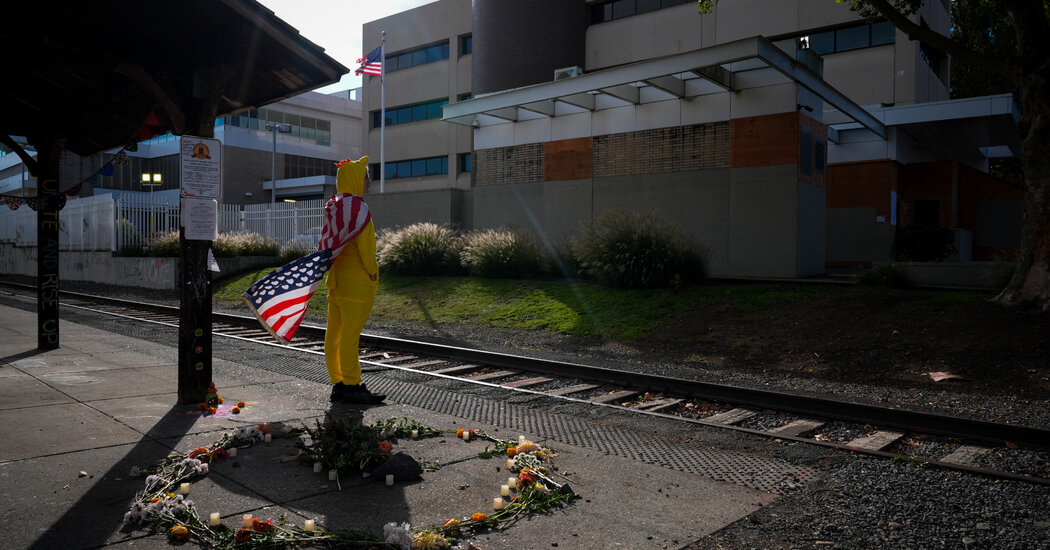“`html
The Erosion of Democratic Norms in Contemporary Politics
The state of democracy in the United States has become a topic of increasing concern among political analysts and citizens alike. The evolution of political behavior, particularly in the context of recent elections, raises questions about the health of democratic institutions and the norms that underpin them. This article examines the implications of these changes and the factors contributing to the erosion of democratic principles.
In the wake of the 2020 election, the Democratic Party achieved a significant victory, which allowed them to implement various policy initiatives aligned with their priorities. Among these was the expansion of health insurance subsidies for families earning above 400 percent of the poverty line. However, these subsidies were designed to expire in 2025, setting the stage for a contentious political landscape. Following the 2024 elections, the Republican Party also emerged victorious, leading to the introduction of legislation that would allow the expiration of the Democratic subsidies as planned. This cyclical pattern of legislative action prompted a critical question: how do political parties respond to shifts in power?
Ideally, a party would advocate for its policies and present a compelling case to the electorate about why its approach is superior. Yet, recent behaviors suggest a deviation from this democratic ideal. Instead of engaging voters on substantive issues, the Democratic Party opted for a government shutdown, a tactic that reflects a deeper malaise within the political system. This decision highlights a troubling trend where political maneuvering takes precedence over genuine democratic engagement.
The implications of this trend are profound, as it signals a shift away from the foundational principles of democracy. Historically, government shutdowns were relatively rare occurrences, often avoided by both parties due to the potential backlash from voters. However, as political cynicism has grown, the frequency and acceptance of shutdowns have increased. Today, the public appears desensitized to the dysfunction of government, which raises concerns about the long-term health of democratic governance.
One of the key factors contributing to this cynicism is the perception that political outcomes are preordained due to gerrymandering and other tactics aimed at minimizing competition in elections. In states like Texas and California, redistricting efforts have created safe seats for incumbents, effectively disenfranchising voters and diminishing the significance of electoral participation. This trend has led to a fatalistic attitude among the electorate, where many feel that their votes no longer matter.
Moreover, the political landscape has shifted towards a mindset characterized by aggression rather than persuasion. The rhetoric used by politicians has increasingly embraced a combative tone, with terms like “fight” becoming commonplace in campaign speeches. This shift reflects a broader cultural change in how politics is perceived and conducted, moving away from dialogue and towards confrontation. As the political discourse becomes more polarized and adversarial, the core principles of democracy—such as deliberation, compromise, and mutual respect—are undermined.
The focus on winning at all costs has led to a scenario where individuals prioritize party loyalty over democratic values. This phenomenon is not limited to one party; both Democrats and Republicans have participated in this degradation of democratic norms. The historical context of partisanship in the United States illustrates that while political divisions are not new, the current climate is marked by unprecedented hostility and a disregard for the principles of cooperation that once characterized American governance.
Furthermore, the impact of this shift extends beyond politics into other societal institutions, such as academia. Universities, once bastions of critical thought and open debate, have increasingly adopted an ideological stance that prioritizes indoctrination over education. This trend contributes to a generation of students who feel pressured to conform to prevailing ideologies rather than engage in genuine discourse. Research indicates that many students recognize this environment as stifling and feel compelled to present views that align with dominant narratives, often at the expense of their own beliefs. This dynamic fosters a culture of performative compliance rather than authentic engagement, further eroding the foundations of democratic discourse.
The implications of these trends are significant. As democratic norms weaken, the potential for authoritarianism increases. Citizens may become more willing to accept undemocratic practices if they believe their party is in power, leading to a dangerous cycle of complacency and disengagement from the political process. It is essential for individuals to recognize the importance of defending democratic principles, even when they may not align with their immediate interests.
The historical roots of democracy in the United States are deeply intertwined with the ideals of Enlightenment thinkers, who championed reason, individual rights, and the social contract. These foundational principles are now at risk as the political landscape becomes increasingly polarized. The rise of social media has also played a significant role in shaping public opinion, often amplifying extreme viewpoints while drowning out moderate voices. This phenomenon has not only contributed to a fragmented political environment but has also led to a decline in trust in democratic institutions.
To further contextualize the erosion of democratic norms, we must consider the role of misinformation and disinformation campaigns, which have proliferated in the digital age. The spread of false narratives can manipulate public perception and distort the democratic process. Citizens may find it challenging to discern fact from fiction, leading to a misinformed electorate that is less equipped to engage in meaningful political discourse.
In conclusion, the erosion of democratic norms in the United States poses a serious threat to the integrity of the political system. The increasing acceptance of government shutdowns, the prevalence of combative political rhetoric, and the ideological rigidity in educational institutions all contribute to a climate of cynicism and disengagement. To restore the health of democracy, it is crucial for citizens and political leaders alike to recommit to the principles of persuasion, dialogue, and respect for diverse viewpoints. Only through a concerted effort to uphold these values can the foundations of democracy be strengthened for future generations.
“`




